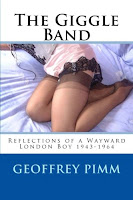
Pure by Andrew Miller
A year of bones, of grave-dirt, relentless work. Of mummified corpses and
chanting priests. A year of rape, suicide, sudden death. Of friendship too. Of
desire. Of love... A year unlike any other he has lived.
Deep in the heart of Paris, its oldest cemetery is, by 1785,
overflowing, tainting the very breath of those who live nearby. Into their
midst comes Jean-Baptiste Baratte, a young, provincial engineer charged by the
king with demolishing it. At first Baratte sees this as a chance to clear the
burden of history, a fitting task for a modern man of reason. But before long,
he begins to suspect that the destruction of the cemetery might be a prelude to
his own.
Children of Eve by Deirdre Purcell
 Eve Moraghan broke
one of the great taboos when she abandoned her children as toddlers. Now
adults, Arabella, Willow and Rowan have heard nothing of their mother since the
day she walked out the door, headed no one knows where. Why she went, they just
don't know. But now, it seems, they're about to find out. Their mother's been
in an accident, and she's sent word that she wants to see her children. The
first reaction is to tell her to forget it. She gave up on them - why should
they jump when she says so? And yet somehow they each find themselves on that
plane, making the journey that will tell them what their past was all about -
and open new doors into the future.
Eve Moraghan broke
one of the great taboos when she abandoned her children as toddlers. Now
adults, Arabella, Willow and Rowan have heard nothing of their mother since the
day she walked out the door, headed no one knows where. Why she went, they just
don't know. But now, it seems, they're about to find out. Their mother's been
in an accident, and she's sent word that she wants to see her children. The
first reaction is to tell her to forget it. She gave up on them - why should
they jump when she says so? And yet somehow they each find themselves on that
plane, making the journey that will tell them what their past was all about -
and open new doors into the future.
 Salt by Jeremy Page
Salt by Jeremy Page
“The mud swelled and
shrank round the house, dislodging the tiles on the roof and knocking the
chimneypot on the huh, as they say in Norfolk. Inside, the floor buckled
on imaginary tree roots.” This is the house in which Goose lives, in which her
daughter, Lil’, is born, and which Pip, the narrator of Jeremy Page’s novel Salt,
comes to know when he runs away from his father. Built on uncertain ground, it
is a fitting home for this family of marsh folk. “It ain’t right,” says a
friend much later in the novel, “livin’ on land that ain’t really land at all.”
Pip tells the story of three generations of his family, but the
telling is itself an uncertain enterprise, connected as it is to the land on
which it takes place, a salt marsh on the North Sea coast of England and
covering events he did not witness. He must rely on the stories of others,
especially his grandmother Goose, with whom the tale begins—but how much is
story? How much is fact? How much is true?
Hope to see you at our next meeting when we will choose our next book - Tuesday 14th May, 8.15pm at Gatehangars.






